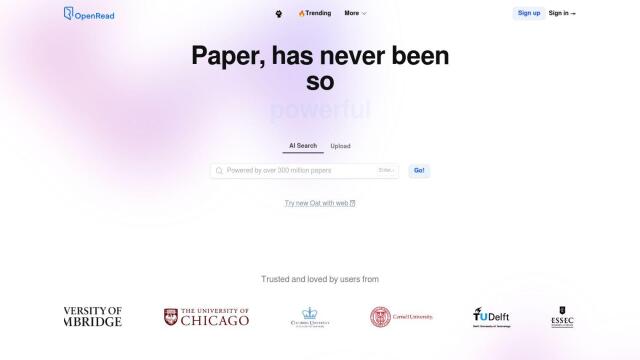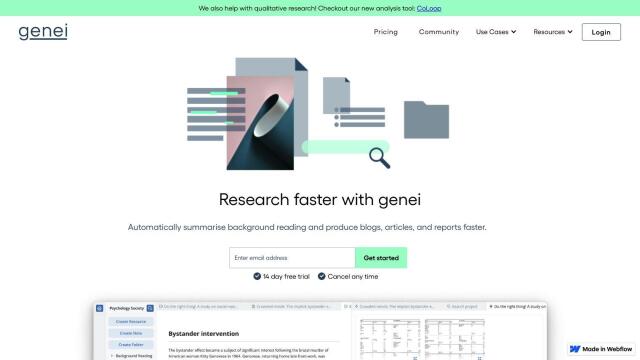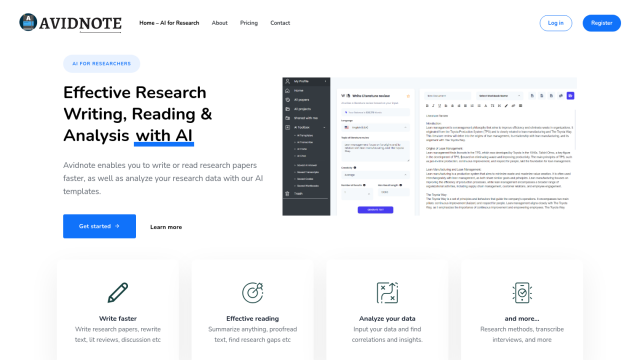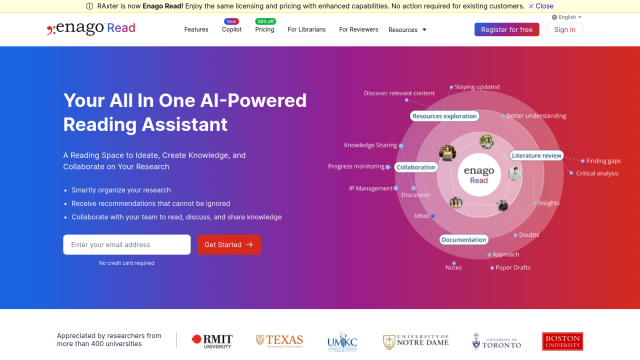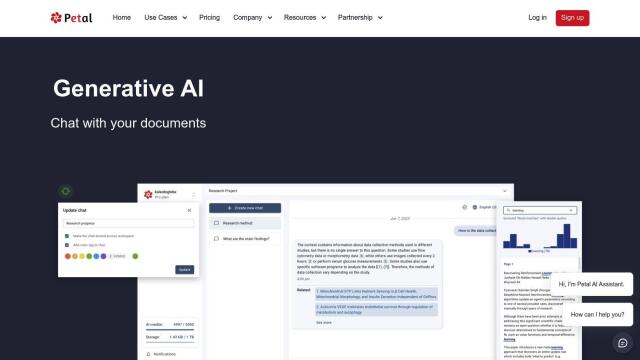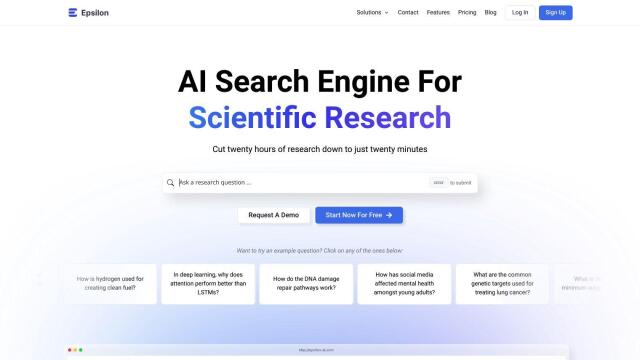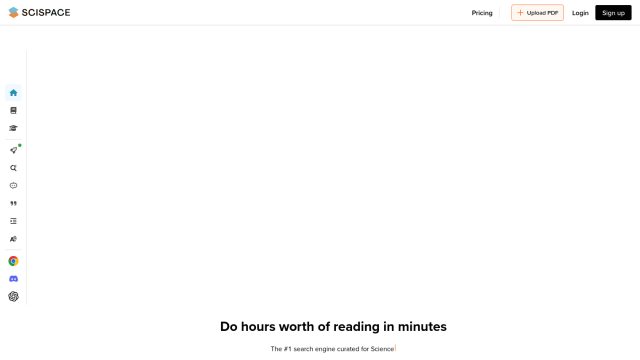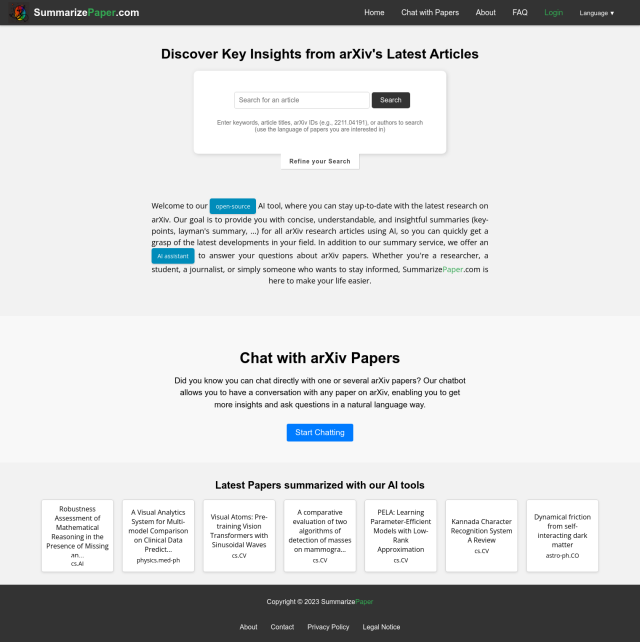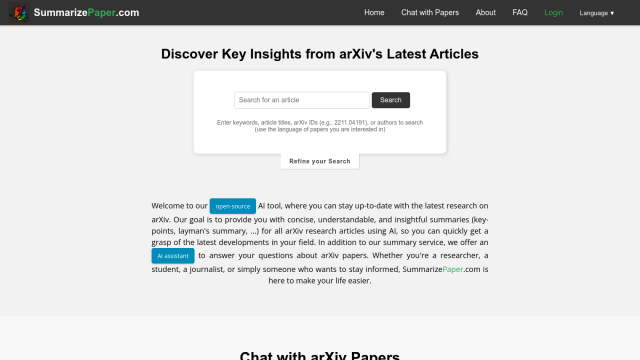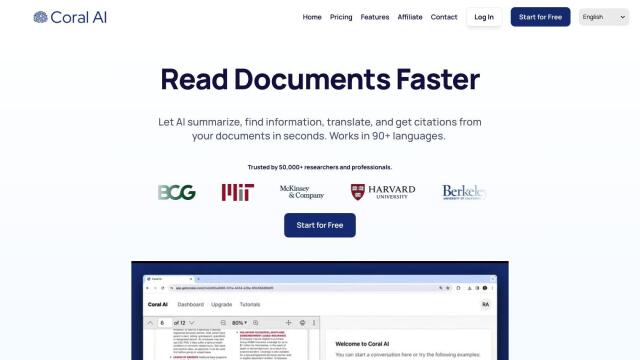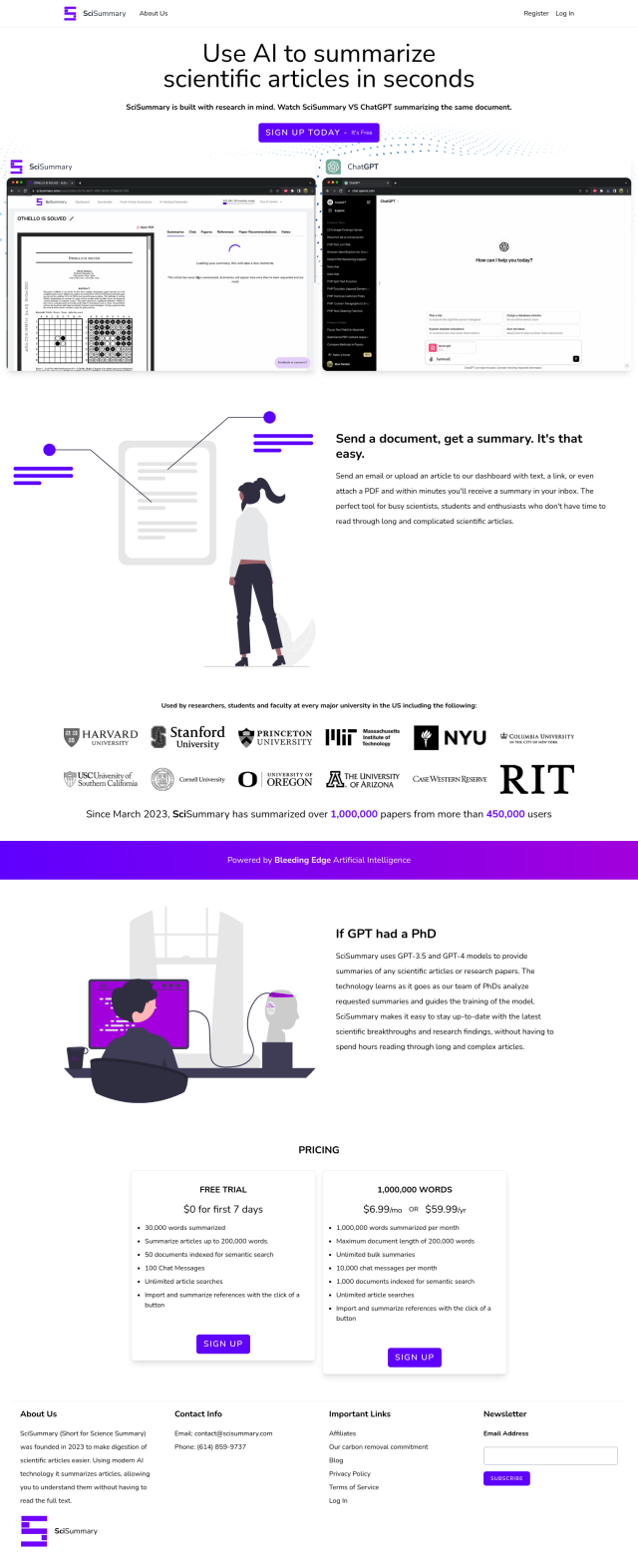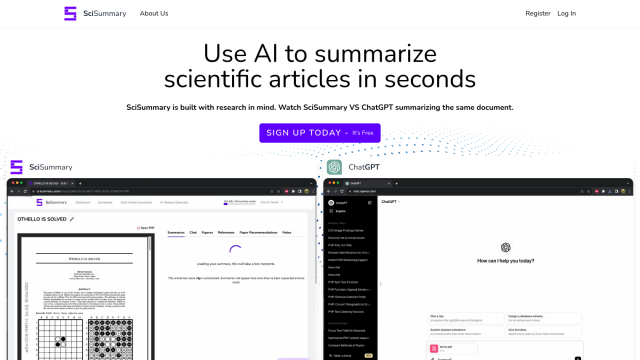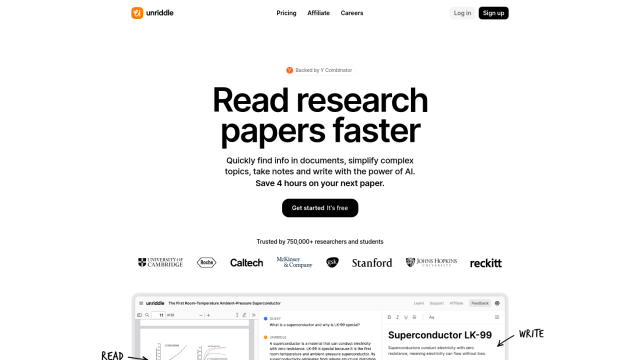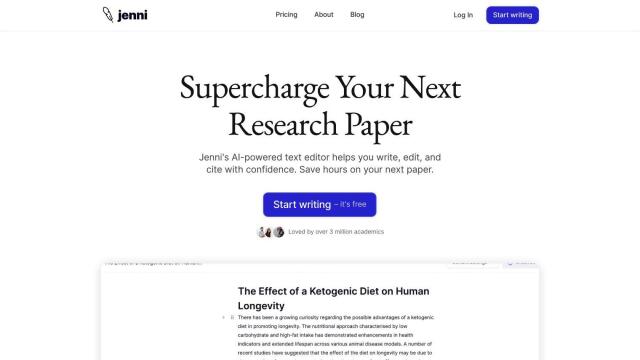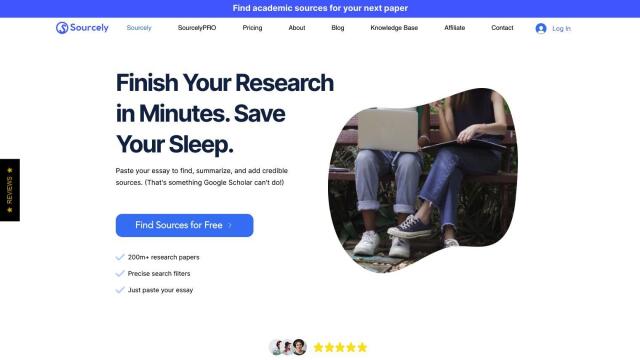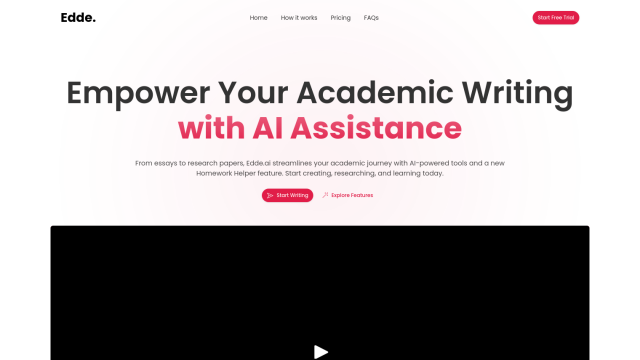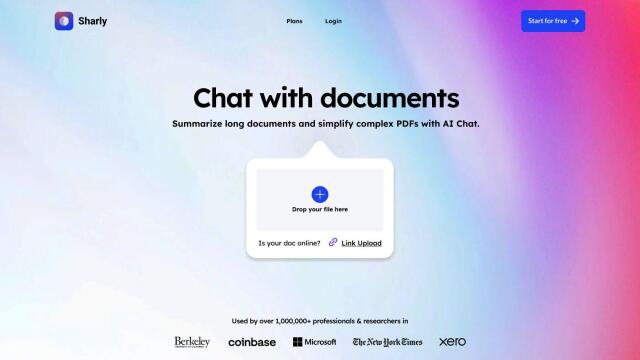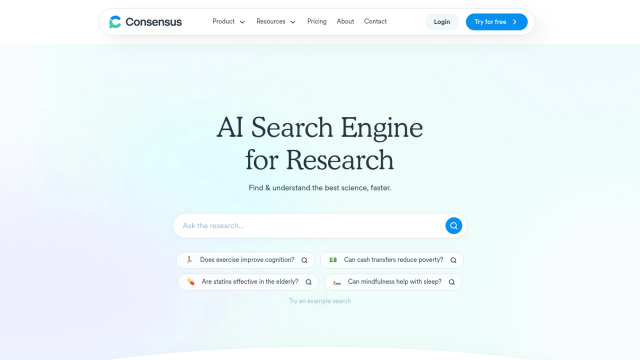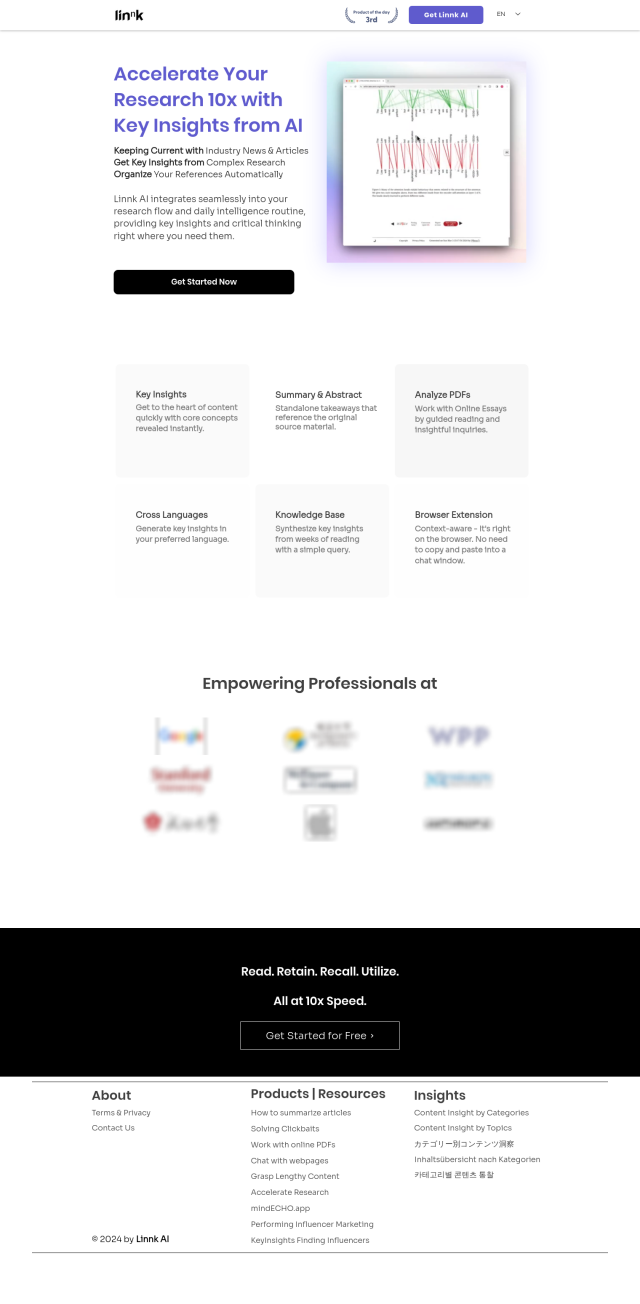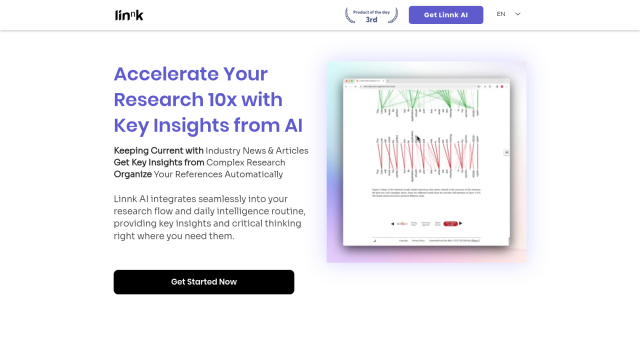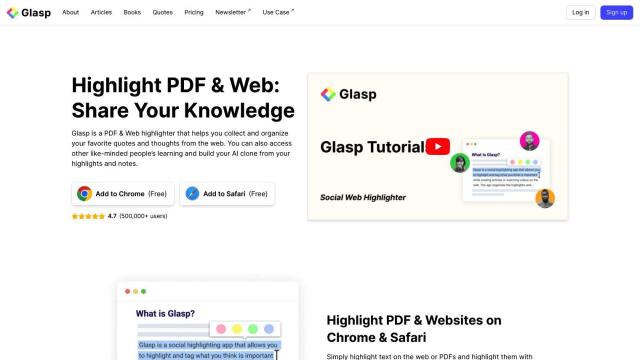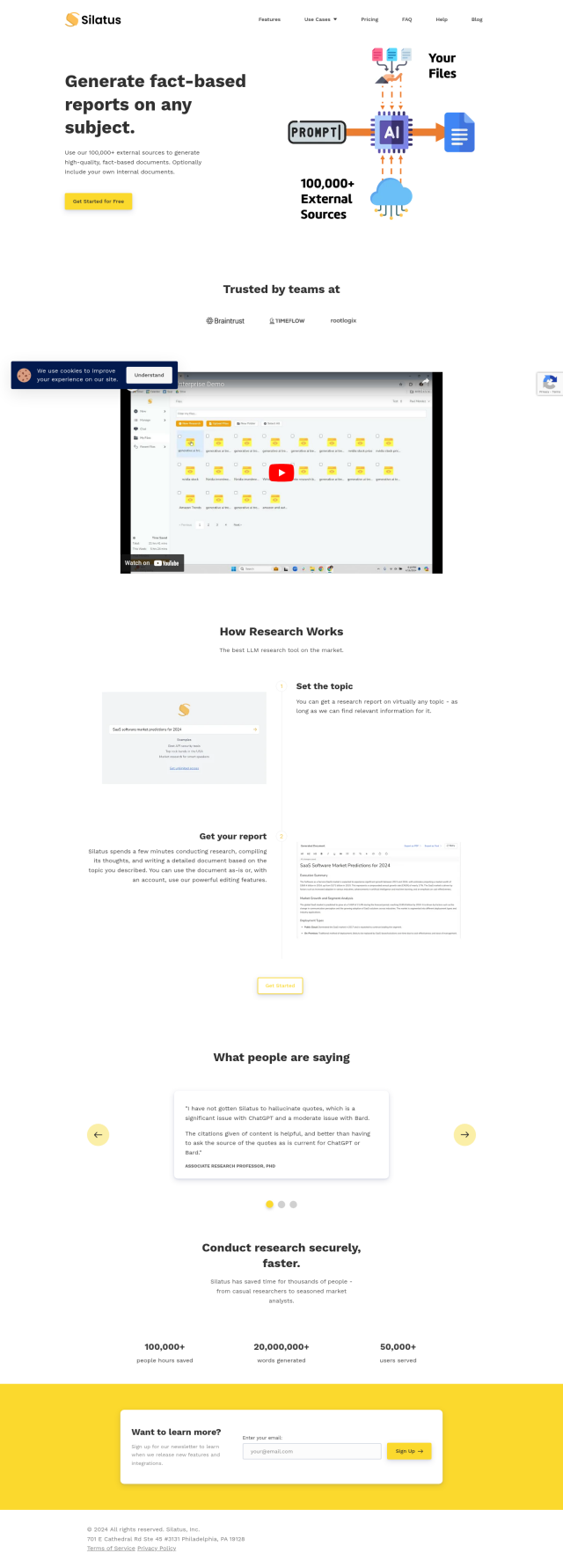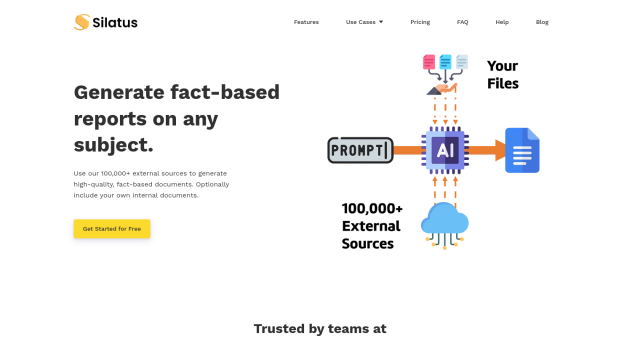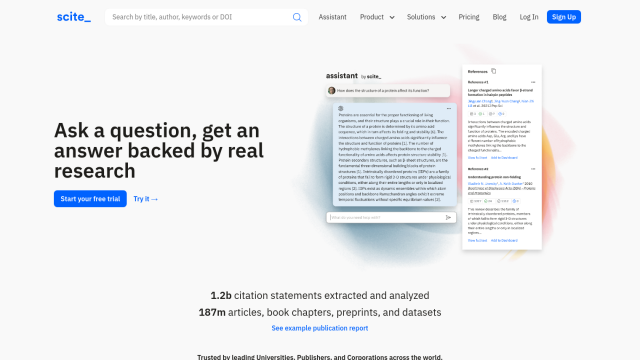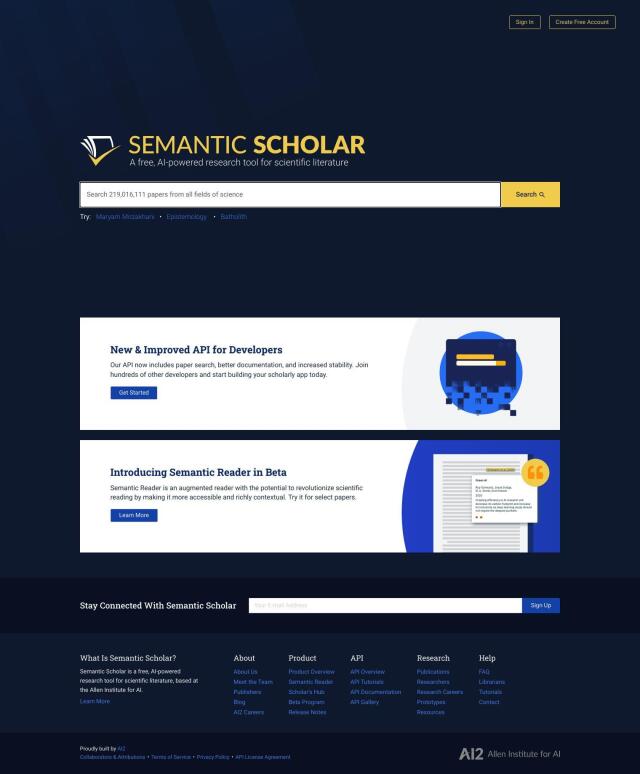
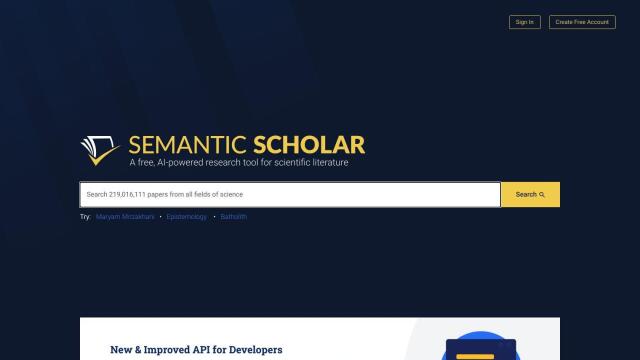
Semantic Scholar
If you're looking for an alternative to OpenRead, Semantic Scholar is another good option. It indexes more than 219 million papers, and its AI-based search and brief summaries (TLDRs) let you get a quick feel for papers. It also offers tools for citing papers, organizing them into folders, and creating AI-based research feeds. Semantic Scholar offers open resources, like the Academic Graph API, and it's free, with no subscription costs, so it's available to researchers and developers.


Elicit
Another good option is Elicit. Elicit is geared for empirical subjects like biomedicine and machine learning, and it lets you search, summarize and extract data from more than 125 million academic papers. It also can be used for tasks like systematic reviews and meta-analyses, and it has a conversational interface with paper content. With pricing tiers including a free Basic plan, Elicit offers different levels of access depending on your needs.

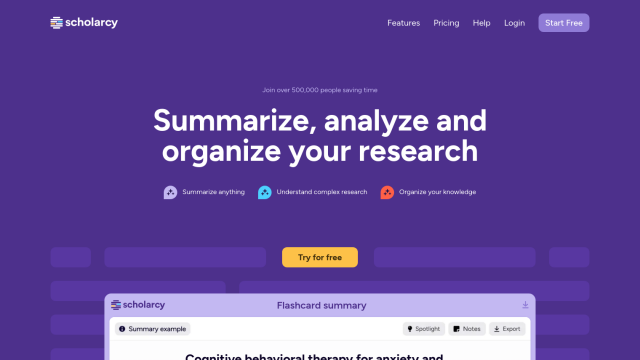
Scholarcy
If you're interested in summarizing academic papers, Scholarcy has a number of features to help you work more efficiently. It can generate interactive summary flashcards, handle multiple file formats, and perform summarization, analysis and note-taking tasks. Scholarcy also offers a free plan with limited features and a paid version (Scholarcy Plus) for more advanced abilities, so it's good for students and researchers who want something simple or more powerful.

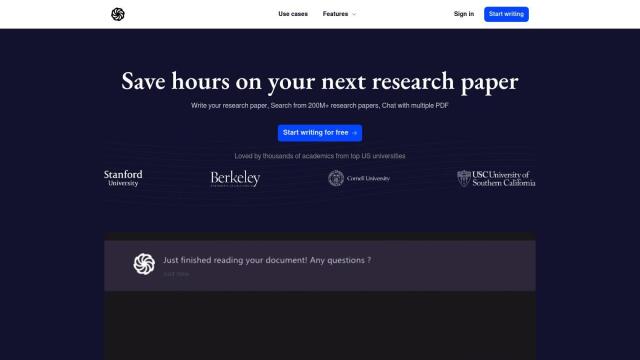
Doclime
Last, Doclime is an AI-based research paper writing tool that can automate tasks like finding relevant literature and then writing the paper for you. It has tools for brainstorming, semantic searches and a writing assistant for tasks like autocomplete and paraphrasing. Doclime is designed to free up your time and get you to your research paper faster, so it's a good option for academics with deadlines.

